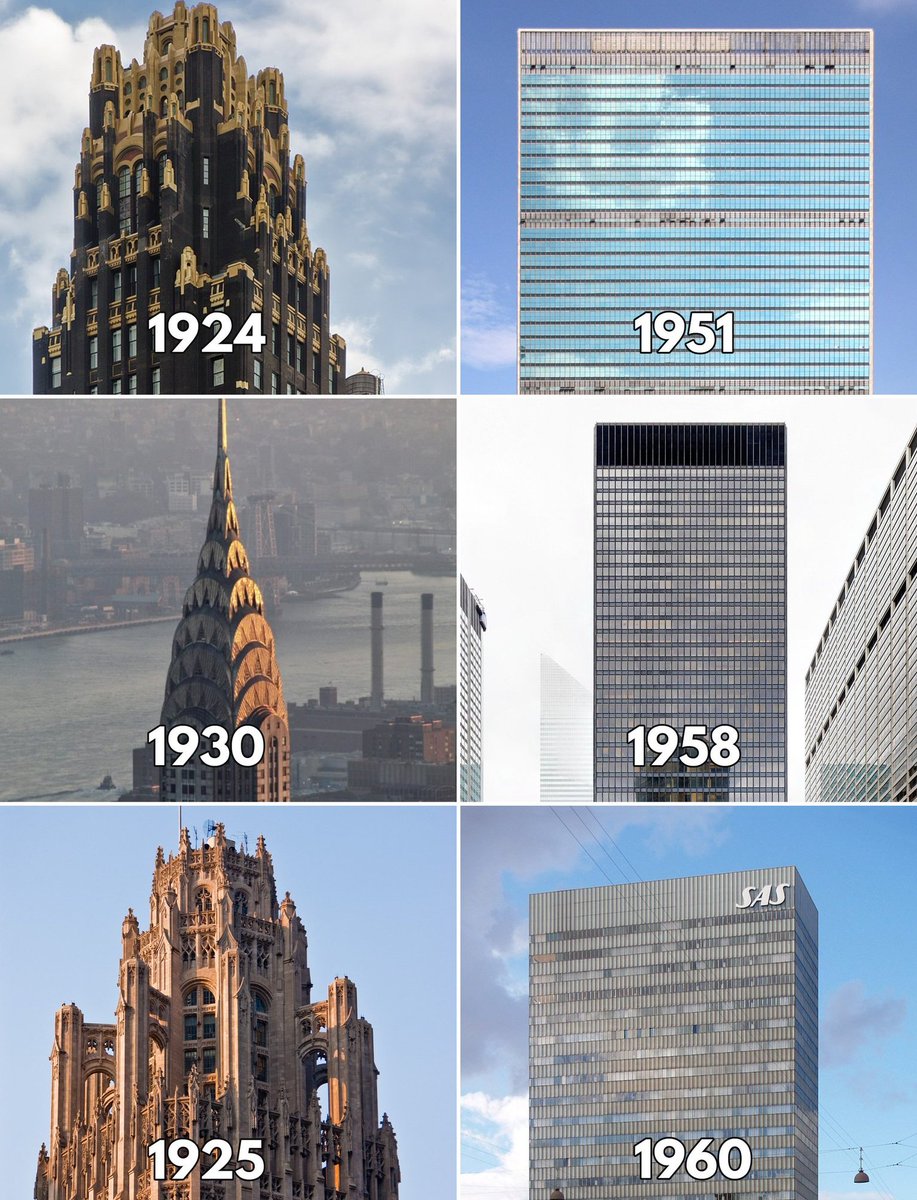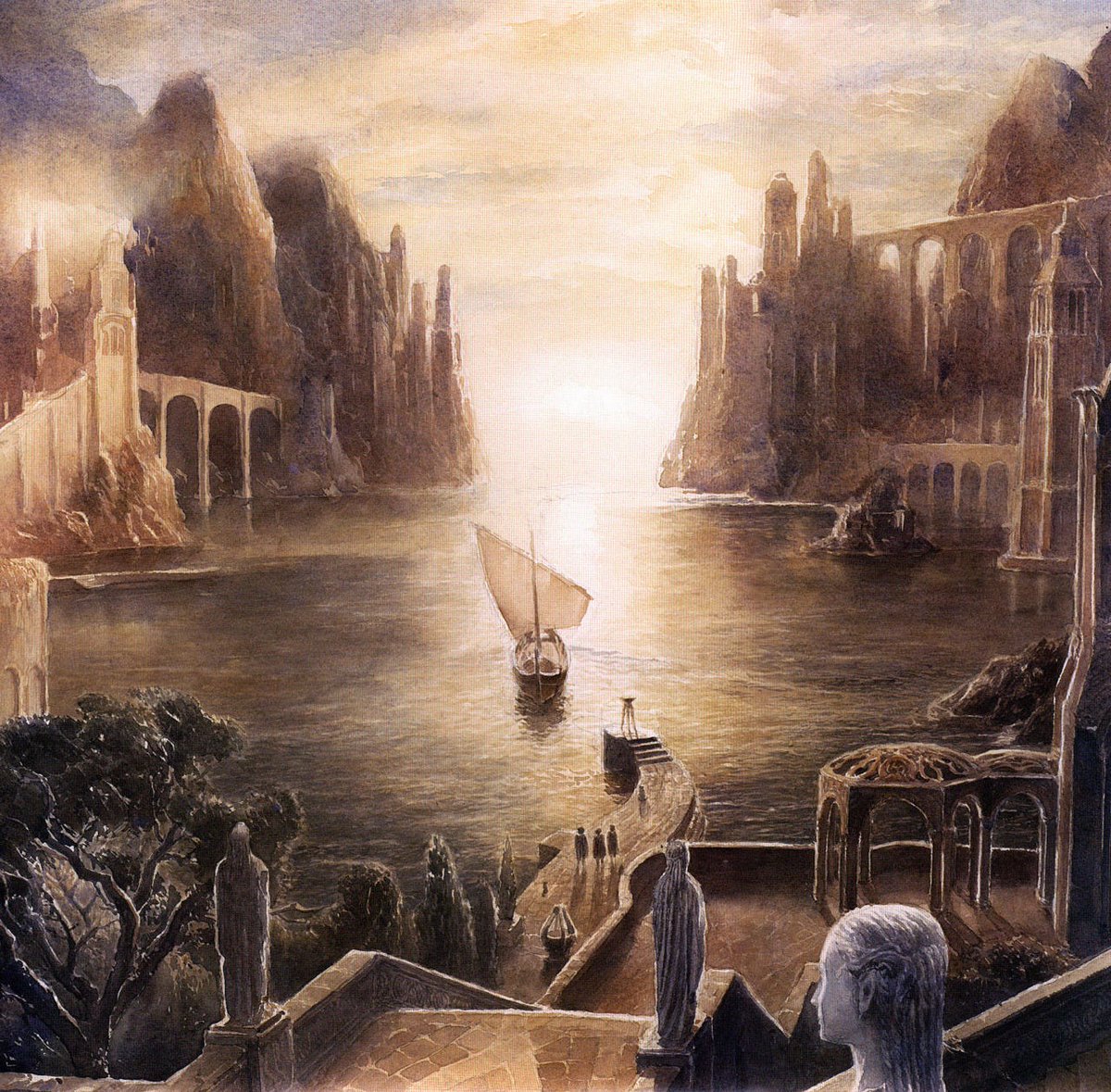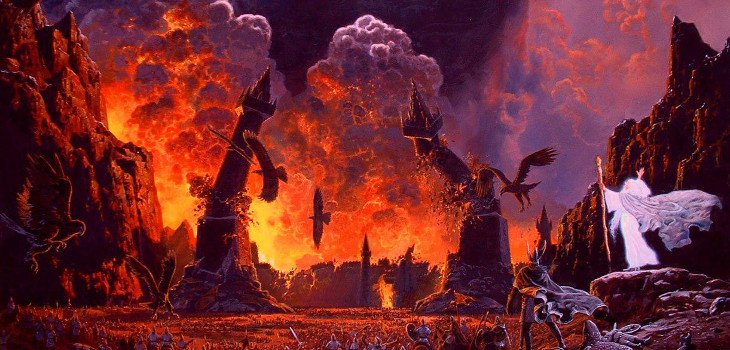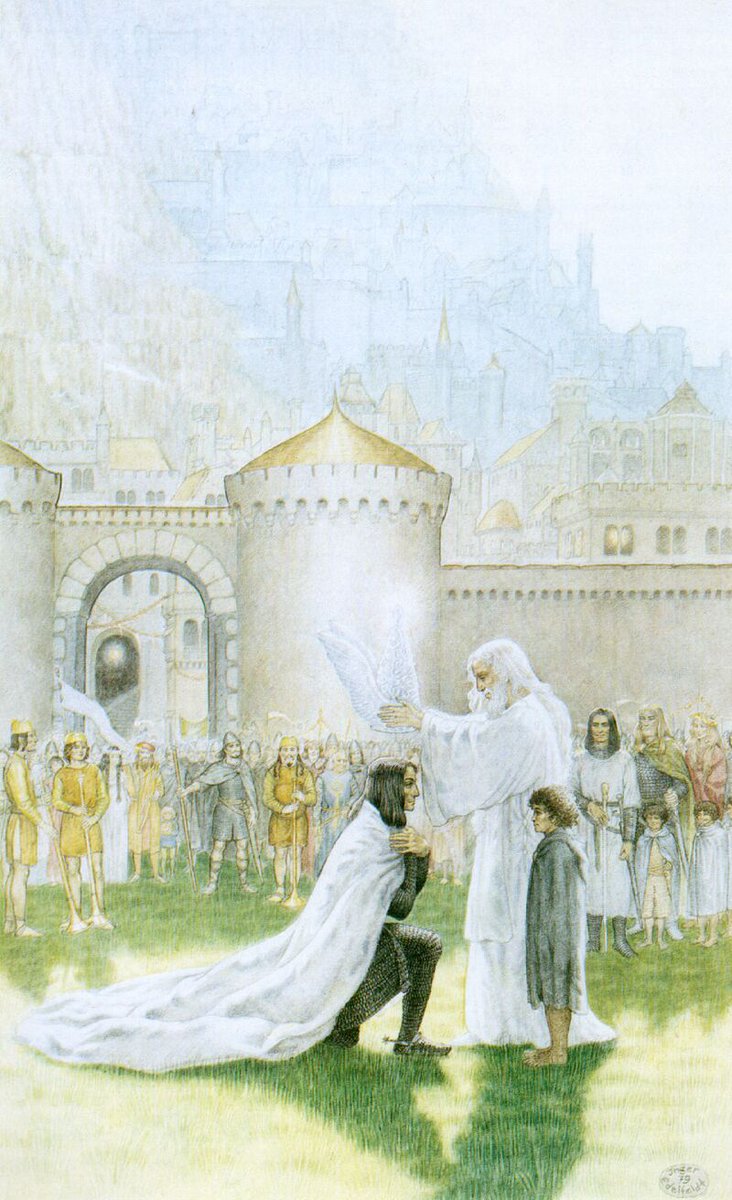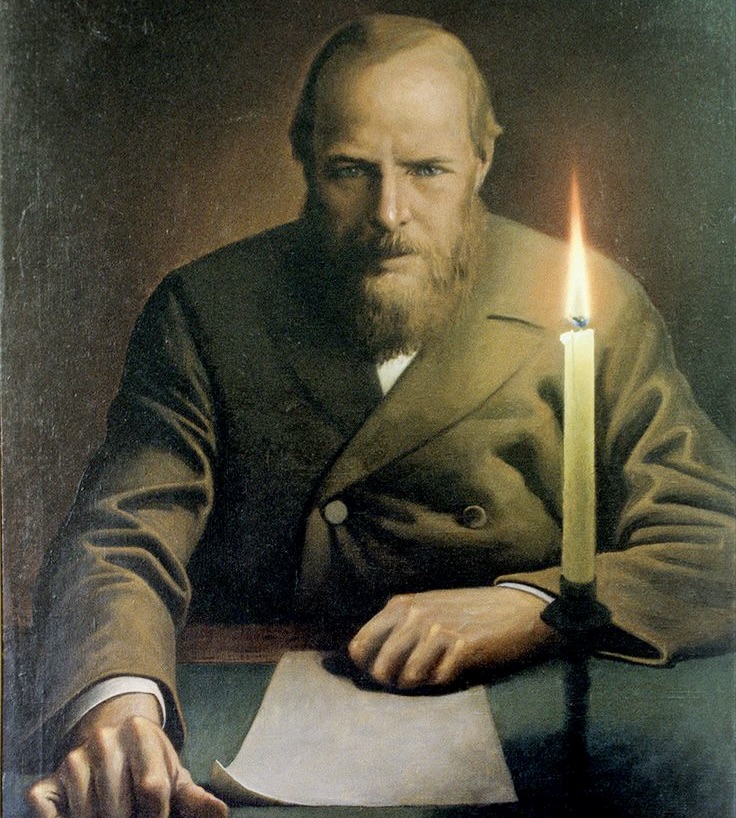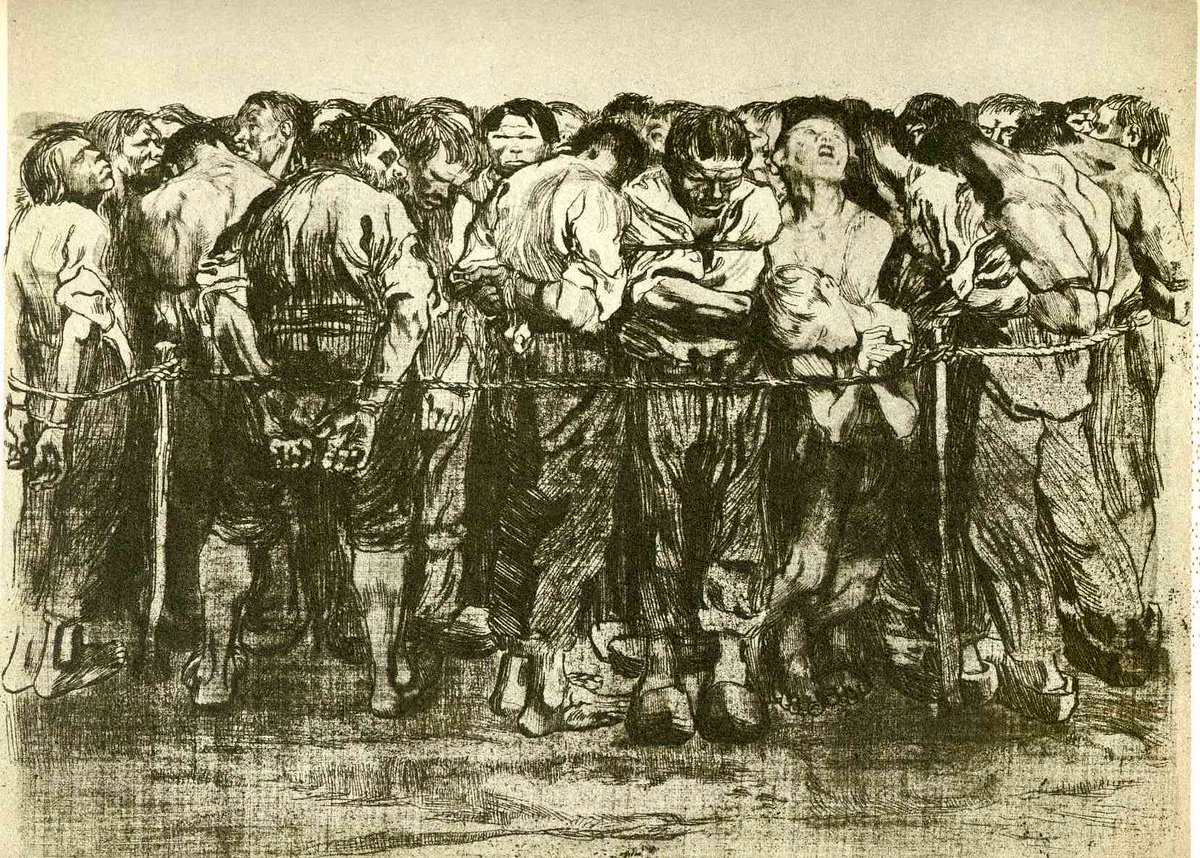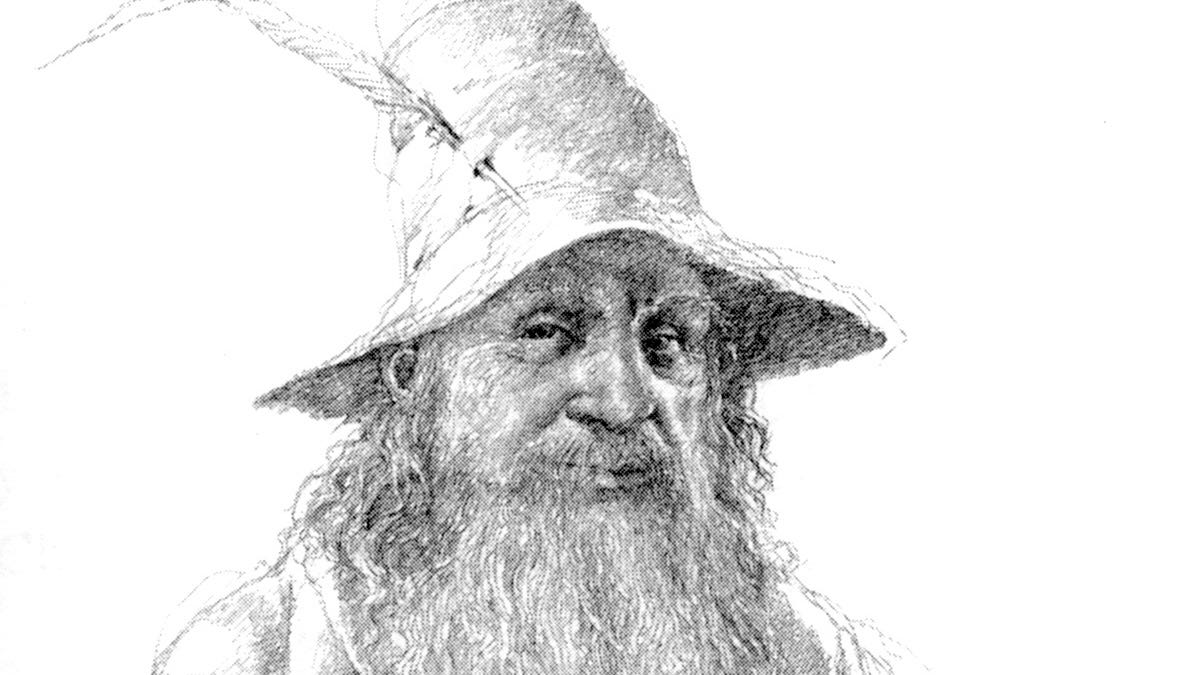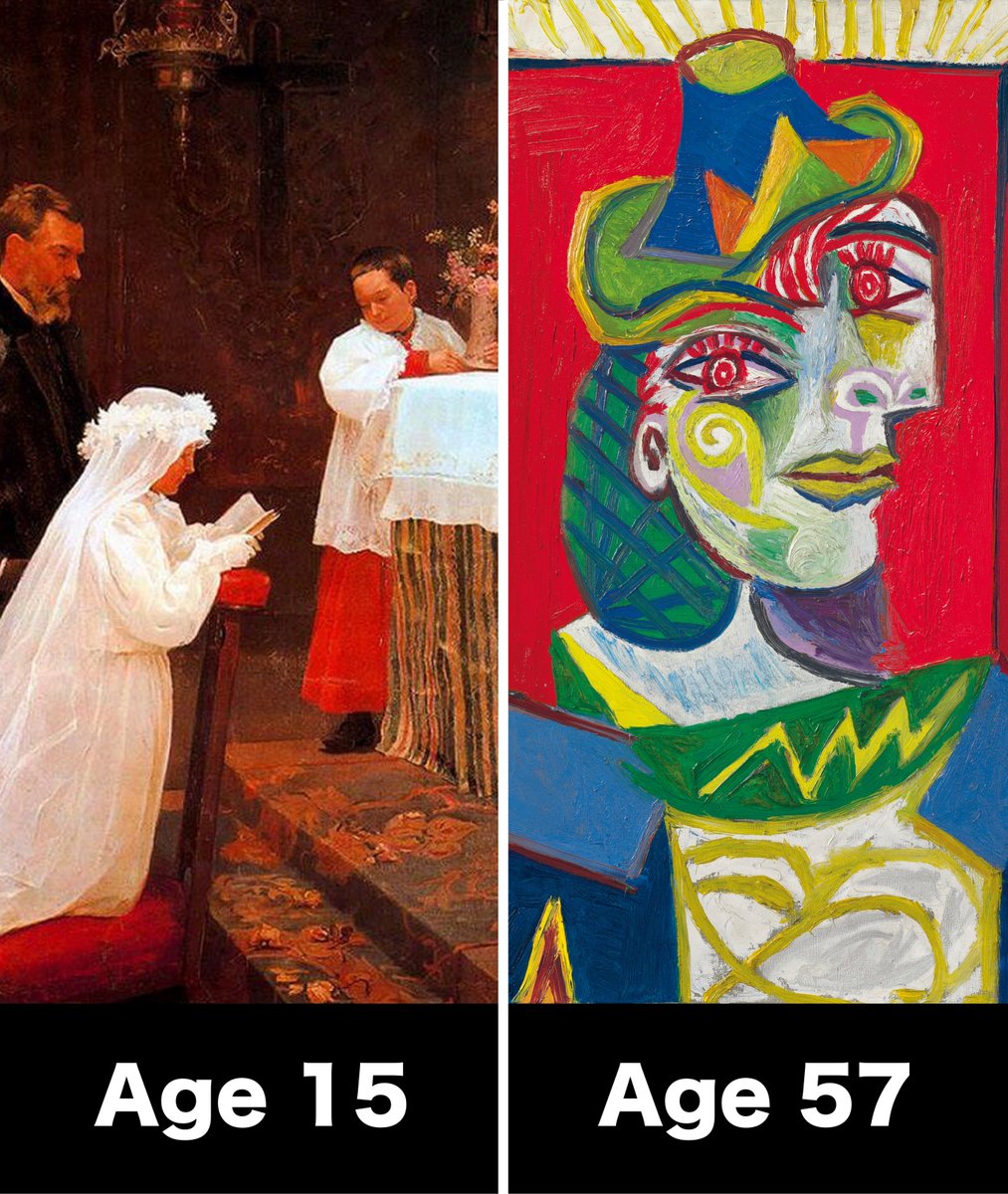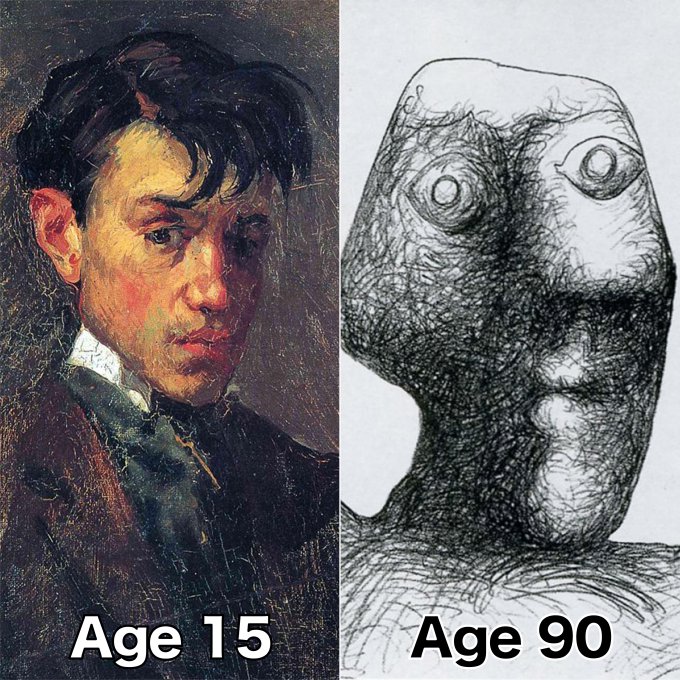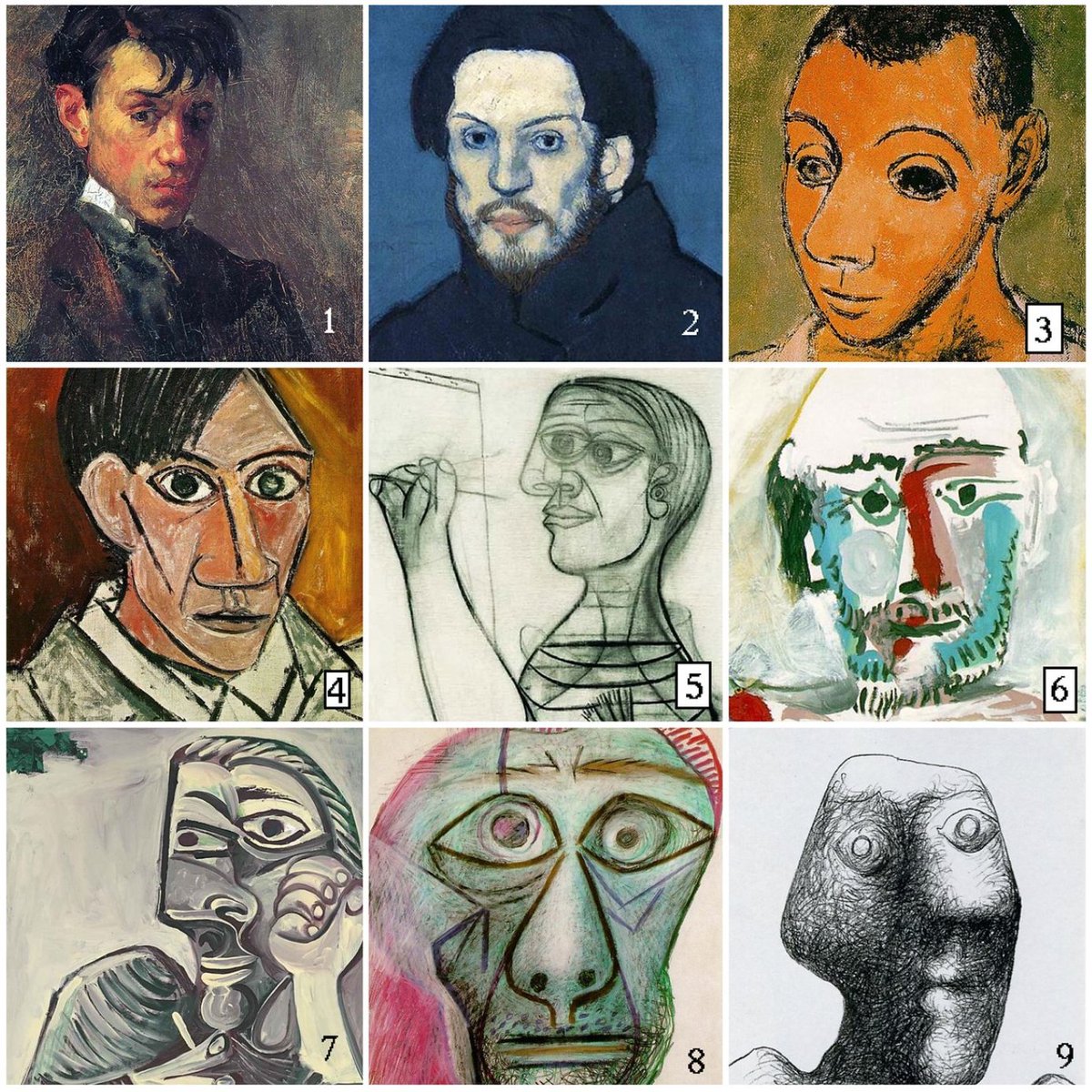Where did this depressing architecture come from?
Is it really designed to demoralize us as @TuckerCarlson says?
A thread... 🧵
Is it really designed to demoralize us as @TuckerCarlson says?
A thread... 🧵
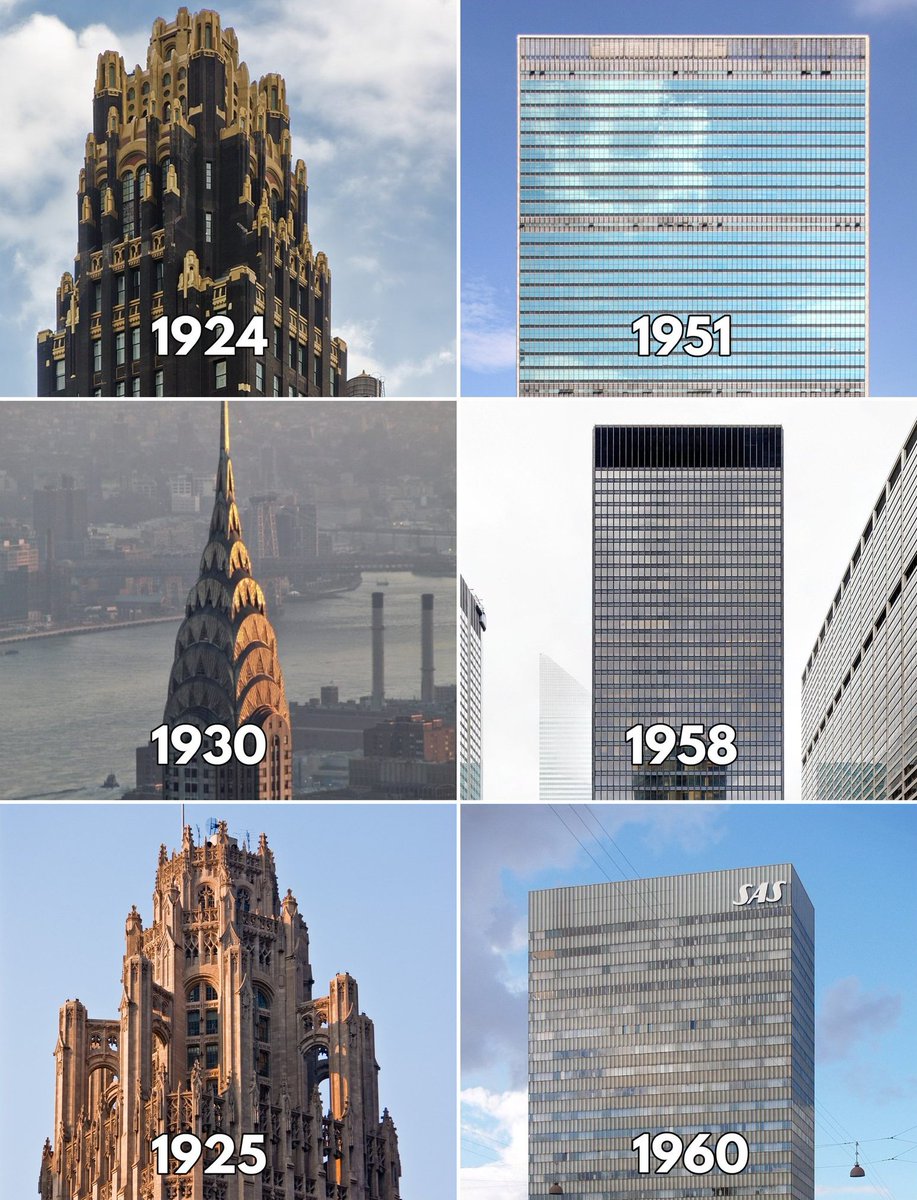
Yesterday, Tucker went viral on architecture (watch the full clip):
"Buildings that are warm and human and that elevate the human spirit are pro-human. Brutalism for example, or the glass boxes that crowd every city in the US, those are not."
"Buildings that are warm and human and that elevate the human spirit are pro-human. Brutalism for example, or the glass boxes that crowd every city in the US, those are not."
He is right, Brutalist architecture is anti-human. It's inextricably linked to sinister social engineering - an attempt to subdue the spirit of humans as individuals, and reduce them to property of the state. 

Above is Soviet-era housing in Moscow. But why did theaters in England go from this (left) to this (right)?




In 1945, the world had to be rebuilt. An efficient way to do it was with cheap, fast to put up materials: concrete, steel, sheet metal.
But were postwar styles like Brutalism about more than cost?
But were postwar styles like Brutalism about more than cost?

Well, Vladimir Lenin once said: "Only by abolishing private property and building cheap and hygienic dwellings can the housing problem be solved."
For one thing, he believed that only government can solve a housing crisis.
For one thing, he believed that only government can solve a housing crisis.

Above all, he thought the proletariat can only be properly led by a "vanguard party": a hyper-class-conscious group that would guide them out of their prejudices and into the "right beliefs."
His line of thinking was a fundamental mistrust of ordinary people.
His line of thinking was a fundamental mistrust of ordinary people.

The Bolsheviks deemed vernacular architecture (built by ordinary people with local materials) "unhygienic".
Lenin was afraid that if people built by themselves, they might default to bourgeois behavior, like beautifying one’s property to stand out from the rest.
Lenin was afraid that if people built by themselves, they might default to bourgeois behavior, like beautifying one’s property to stand out from the rest.

Russian communism therefore found its perfect ally in what became brutalism: cheap, conformist, and centrally planned. And after WW2, socialism was quickly capturing the Western intelligentsia too - and Western architects. 

The real marriage of communism and concrete was officiated not by Lenin, but by a Swiss-French architect - Le Corbusier...
"We must create a mass-production state of mind… a state of mind for living in mass-production housing."
"We must create a mass-production state of mind… a state of mind for living in mass-production housing."
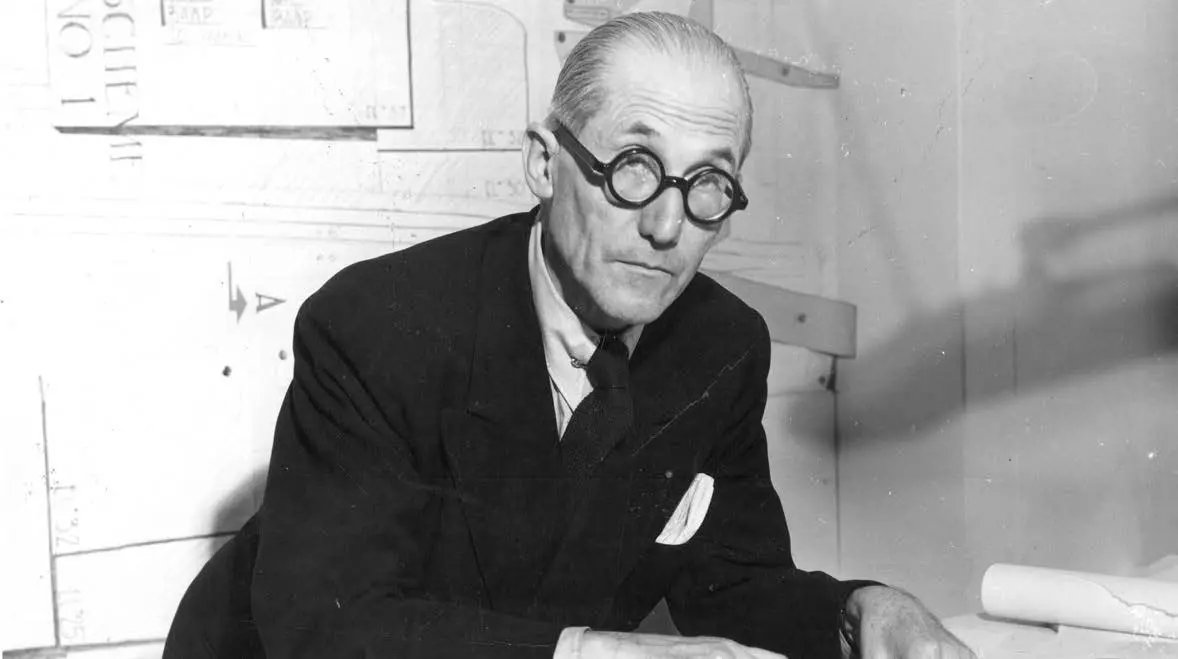
He thought the world was enslaved to outdated traditions and ideals of beauty. To him, homes were mere "machines for living in", and should be severe, blank and angular - he would tell the masses what was good for them. 

In his brave new world, all cities must look the same. Undifferentiated houses would prevent any impulse toward owning private property.
"Oslo, Moscow, Berlin, Paris, Algiers, Port Said, Rio or Buenos Aires, the solution is the same", he raved.
"Oslo, Moscow, Berlin, Paris, Algiers, Port Said, Rio or Buenos Aires, the solution is the same", he raved.

Those plans were thrown out, but his ideas spread: the Paris plans were showcased around the world, and Le Corbusier became the first modern architect. 

His style later became Brutalism (from the phrase "béton brut" meaning "raw concrete"), which sprang out of the postwar construction crisis and did irrevocable damage to cities across Europe and elsewhere.
Even churches became hunks of concrete:
Even churches became hunks of concrete:
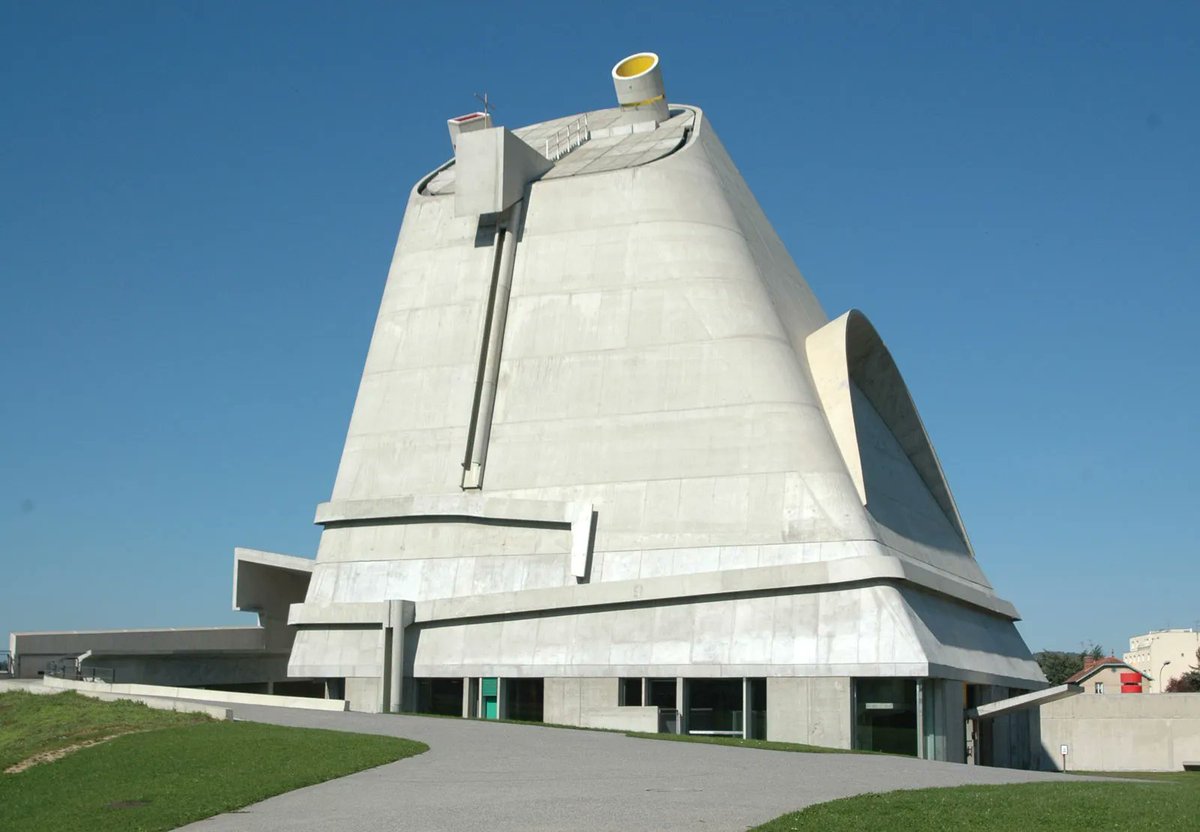
Le Corbusier set in motion a new architecture which rejected the need for outward beauty.
Architecture was to focus not on what an ornamental façade can do for the senses, but on space, light and function at the cost of all else.
Architecture was to focus not on what an ornamental façade can do for the senses, but on space, light and function at the cost of all else.

I discuss topics like this every week in my newsletter. Join 23,000 readers (completely free!) 👇
culturecritic.beehiiv.com/subscribe
culturecritic.beehiiv.com/subscribe
• • •
Missing some Tweet in this thread? You can try to
force a refresh



